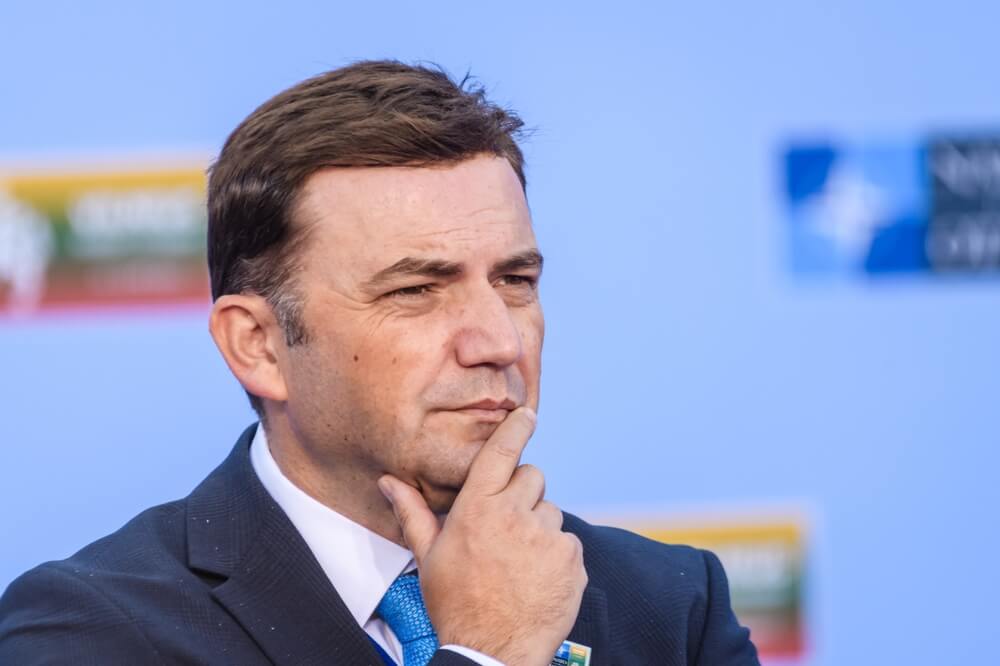The Ministerial Council of the Organisation for Security and Cooperation in Europe (OSCE) in the capital of North Macedonia, Skopje, next week could be the last meeting of the central governing body of this organisation and a prelude to its dissolution.
At the annual meeting, the ministers of foreign affairs of the 57 member states will have in front of them, for now, unsolvable problems regarding the functioning of the OSCE, with little prospect of seriously dealing with longer-term affairs.
Last Friday, the government of North Macedonia resolved only one of the principal dilemmas ahead of the largest political gathering ever organised in that small Balkan state, recently also a member of NATO (2020).
Skopje has opened its airspace for only 3 days for the head of Russian diplomacy, Sergei Lavrov’s plane, to allow him to participate in the meeting on November 30 and December 1.
Is a compromise with Russia possible?
Skopje's move to temporarily freeze sanctions against the first Russian diplomat hints that the forthcoming meeting could be an attempt to compromise with Russia over some existential issues of the organisation.
In compliance with the restrictions, Poland, as the host of the OSCE ministerial meeting in Lodz last year, banned Lavrov from attending. However, the current chairman apparently decided otherwise in consultation with his partners.
Russia has been abusing the principle of consensus decision-making in the OSCE for a long time, which has been paralysing the organisation's activities in some significant regions, such as the Caucasus.
Constant obstruction led to the OSCE not being able to adopt the budget since 2021 (about €140 million per year).
There is every chance that the meeting in North Macedonia will not reach a decision regarding the budget, again due to Russian opposition. Otherwise, it would mean a shift and better days for the OSCE. That would, however, imply a compromise with Moscow.
An even bigger problem that the ministerial council in North Macedonia will face is the election of a new annual chairman, given that North Macedonia's chairmanship ends on December 31.
For the first time in its almost 50 years of existence, the OSCE is facing a blockade of its work, as there is a possibility that it will not be able to choose the country that will preside over the organisation in 2024.
 Bujar Osmani, The North Macedonia foreign minister: We will not allow the organisation to collapse
Bujar Osmani, The North Macedonia foreign minister: We will not allow the organisation to collapse
The only candidate, Foreign Minister Margus Tsahkna, is unlikely to take over the presidency for the next year because of Moscow's opposition. Russia does not want any NATO member to be chairman: Estonia in particular, which has represented the first front of Ukraine's allies in its defence against Russian aggression.
The OSCE, however, chose Finland to be the chairman in 2025 on the occasion of the 50th anniversary of the adoption of the Helsinki Final Act, which established the foundation of this organisation. However, today, that presidency seems too distant and uncertain.
“The biggest challenge is the political leadership because the organisation cannot function without a chair", Mr Bujar Osmani, head of diplomacy of North Macedonia and chairman of the forthcoming meeting, told the Financial Times. However, he assured that his country would do its best to overcome the vacuum.
One of the options, even though "as a last resort", as Minister Osmani said, is for him and his government to continue coordinating the OSCE in the following year.
There were also rumours that the chairmanship could be offered to Austria as a compromise solution since Vienna is the headquarters of the OSCE, and Austria is not a member of NATO.
There is also speculation about the possible presidency of Malta since it previously competed with North Macedonia for the mandate in 2023 and Kazakhstan.
Does the OSCE have an alternative?
No matter how the issue of leading the OSCE in 2024 gets resolved, it will be a forced, half-hearted and temporary solution, which will not allow the organisation to fulfil its role.
After the annexation of Crimea in 2014, and particularly after the invasion of Ukraine in 2022, Russia's participation in the most significant security forum in Europe renders its existence meaningless.
On the eve of the 50th anniversary of the OSCE, it is time to search for an alternative
On the eve of the 50th anniversary of the OSCE, it is time to search for an alternative which would respond to the purpose of being the most authoritative platform for security dialogue in a different form, adapted to the crucial changes in the European security architecture.
The European Political Community, an informal initiative launched by France, has an identity problem of its own, but perhaps it could find one in taking over some principal OSCE tasks.
Without the participation of Russia and Belarus, but with the presence of all other current OSCE members, the EPC is a more functional version of the dying organisation.
The fact that the EPC is not an institutionalised organisation but a forum of equals without a solid internal structure seems to be its principal disadvantage. However, in the context of assuming the OSCE's mandate for conflict prevention and security dialogue, it could only be an advantage.